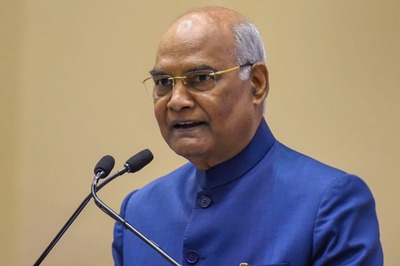
views
New Delhi: The Supreme Court on Wednesday ruled that Aadhaar, the ambitious public scheme that uses biometric data to generate unique identification numbers for citizens, is constitutionally valid, but with conditions. Here are the key takeaways from today's verdict.
Aadhaar empowers marginalised sections: Pronouncing the judgment, the Supreme Court said Aadhaar empowers marginalised sections of the society and gives them identity, which outweighs the harm. The court declared the national identity card "constitutionally valid" in response to petitions raising violation of privacy.
Mandatory for filing income tax return: SC upheld the 139AA of Income Tax Act. “It is mandatory to quote Aadhaar/Enrolment ID of Aadhaar application form for filing of return of income and for making an application for allotment of Permanent Account Number,” the Supreme Court said.
Could be passed as a Money Bill: The five-judge Constitution Bench has ruled that there is no need to link Aadhaar with bank accounts and mobile phones, but held that Aadhaar could be passed as a money bill.
National security exception struck down: The National security exception for disclosure of Aadhar information as per Section 33(2) has been struck down by judgment of Justice Sikri. Section 33(1) permitting disclosure of Aadhaar information on orders of district judge read down to enable opportunity of hearing to the owner of data.
Not for illegal immigrants: The SC directed the government to “ensure that no illegal immigrant get Aadhaar benefits meant for the deserving people.”
Not mandatory for school admissions: "No child can be denied any schemes if they are not able to bring their Aadhaar number. For the enrollment of children, it would be essential to have the consent of parents. They should be given an option to exit on attaining majority. CBSE, NEET, UGC making Aadhaar mandatory is bad and they cannot do so," the apex court observed.
Private firms can't access Aadhaar data: Reading down Section 57 of the Aadhaar Act, the SC barred the sharing of data with private body corporates. The term "body corporate" is defined in Section 2(11) of the Companies Act, 2013. This includes a private company, public company, one personal company, small company, Limited Liability Partnerships, foreign company etc.
Not mandatory for bank accounts, mobile phone connections: Aadhaar cannot be mandated for the opening of bank accounts, the Supreme Court said. It cannot be made mandatory for mobile connections either, the court said.




















Comments
0 comment